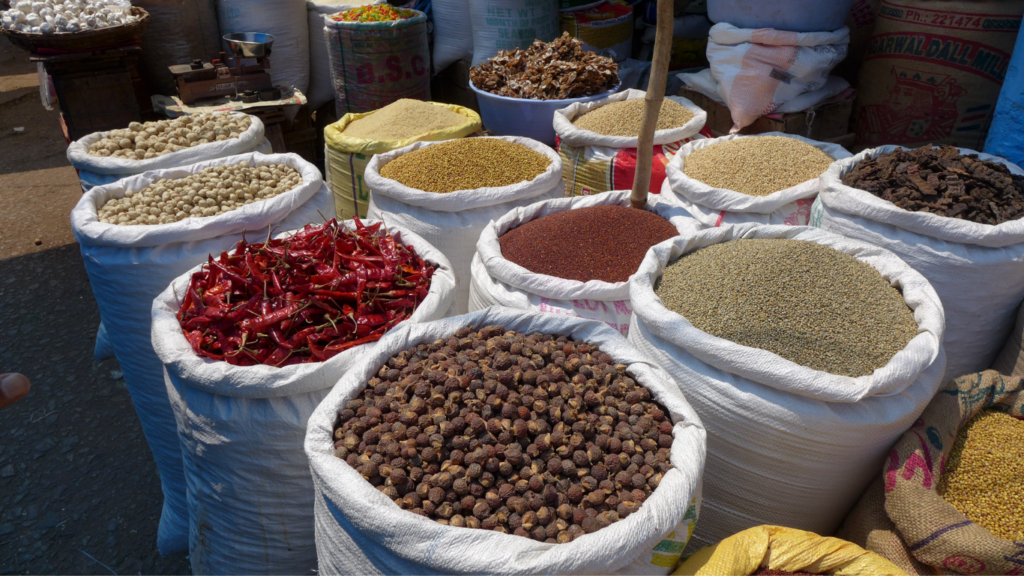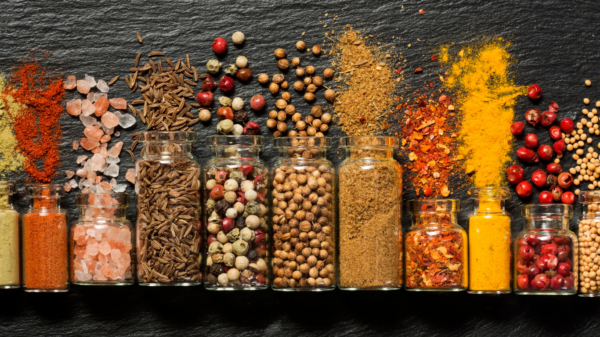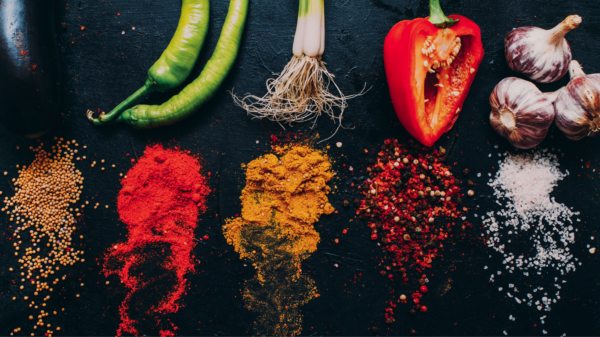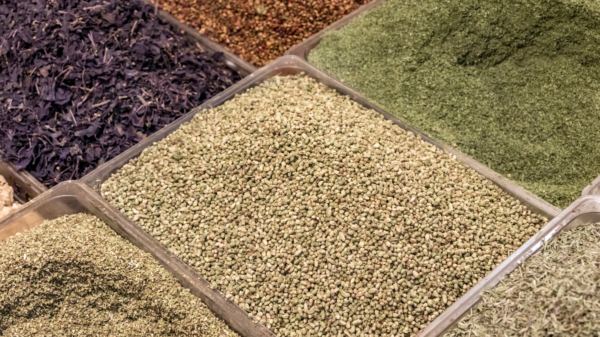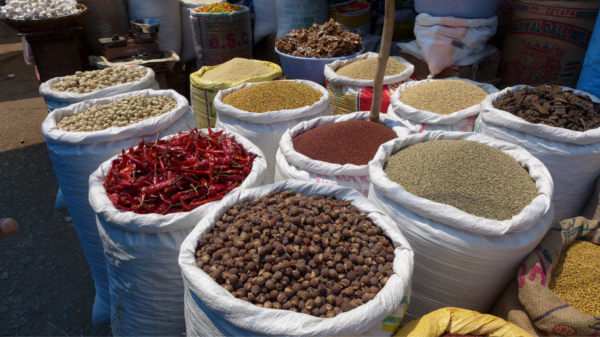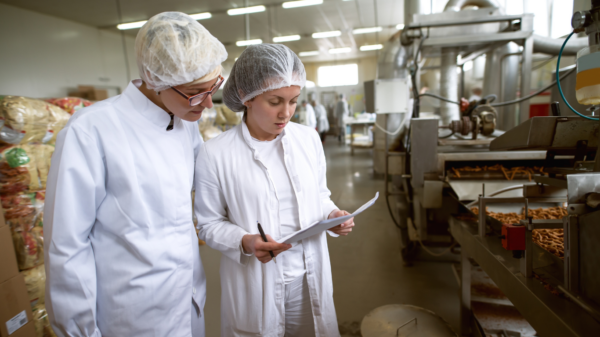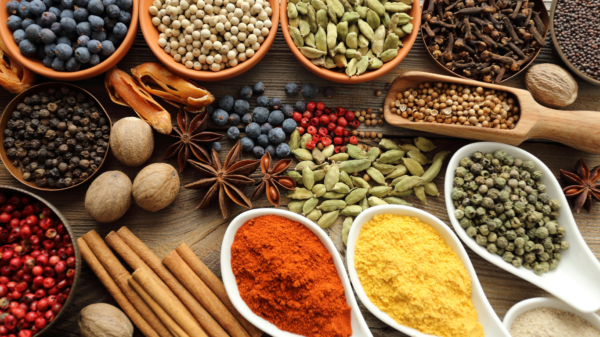Food safety is critical to any food business, and the bulk spice industry is no exception. With the wide range of spices consumed globally, ensuring their safety throughout storage and distribution is imperative. The journey of a spice, from the time it is a raw material until it reaches the consumer, involves meticulous safety protocols designed to keep the consumer safe. Follow along as our wholesale bulk spice supplier team discusses food safety as it relates to spices you use and consume every day.
What are the Risks in Bulk Spice Storage and Distribution?
Bulk spices, while adored for their ability to enhance the flavor of dishes, can also pose food safety hazards if not handled properly. These hazards primarily consist of microbial contamination, cross-contamination, and chemical contamination. Bacteria, yeast, and mold can thrive in spices under inappropriate storage conditions, leading to microbial contamination. Cross-contamination can occur during the processing or distribution stages, particularly when spices come into contact with allergens or other contaminants. Chemical hazards can come in the form of heavy metals and aflatoxins. Chemical contamination can occur due to naturally occurring soil toxicity or improper drying practices. These hazards can significantly impact consumer health, leading to foodborne illnesses. Additionally, they can result in costly recalls for businesses, damaging their reputation and consumer trust.
How Do Bulk Spice Companies Maintain Quality Control?
The journey towards safe spices begins with the sourcing of quality raw materials. Spice companies ensure that they procure their raw materials from reputable suppliers who adhere to Good Agricultural Practices (GAP). GAP includes guidelines on the routine testing of crops for contaminants, and proper cleaning and drying techniques for the harvested spices. By ensuring the quality of the raw materials companies can effectively minimize the likelihood of introducing contaminants into their production chain.
Bulk Spice Processing and Safety Measures
The processing of spices involves several steps – cleaning, drying, grinding, and packaging – and each of these steps is an opportunity to enhance the safety of the spices. Cleaning is the first line of defense, removing foreign material and reducing the microbial load. Drying, performed under controlled conditions, further reduces the microbial load and makes the environment inhospitable for the growth of microbes. Grinding should be done with sterilized equipment, and personnel must adhere to strict hygiene rules to prevent the introduction of contaminants. Packaging, the final step, is crucial in protecting the spices from environmental exposure and cross-contamination.
What are Good Storage Practices for Spices?
The storage of spices requires maintaining specific conditions to ensure their safety. Ideal storage conditions for spices involve low humidity and cool temperatures, conditions that inhibit microbial growth. Furthermore, different types of spices and potential allergens are segregated during storage to prevent cross-contamination. Following the First In, First Out (FIFO) principle, inventory rotation is critical to ensuring the freshness of the spices and minimizing the time that potential contaminants can affect the product.
What Should Spice Distribution Processes Include to Keep Spices Safe?
During the distribution and transport stage, spices should remain under controlled conditions. Cleanliness of the transport equipment is vital to prevent the introduction of contaminants during this stage. Traceability and recall systems form an integral part of the distribution stage. These systems enable companies to quickly locate and remove affected products from the market in the event of a safety issue, thereby minimizing harm to consumers and damage to the company’s reputation.
Why Regulatory Compliance and Audits are Important for Food Safety
Complying with food safety regulations and industry standards is a non-negotiable aspect of operating in the spice industry. Regulations may vary by region, but they generally cover aspects such as hygiene, contamination control, traceability, and recall systems. Regular audits, both internal and external, are performed to ensure compliance with these regulations. These audits also provide an opportunity for continuous improvement, highlighting areas where the company can enhance its food safety practices.
Continuous Improvement and Innovation
The quest for food safety doesn’t end with meeting regulatory standards. In fact, continuous improvement and innovation are cornerstones of effective food safety practices. Spice companies often have dedicated research and spice development teams working on improving safety practices. This can involve innovations in processing technology, such as using novel sterilization techniques or developing advanced packaging materials that can better protect the spices from environmental factors.
Customer feedback and incident reports also contribute to continuous improvement by identifying areas for potential enhancement. By maintaining an open line of communication with consumers and actively seeking their feedback, companies can better understand the areas where they need to improve. Incident reports, on the other hand, provide valuable insights into the potential weaknesses in the existing safety protocols and offer a starting point for making necessary improvements.
The spice industry’s commitment to maintaining and enhancing food safety practices is evident in every step of the storage and distribution process. From sourcing quality raw materials to investing in continuous improvement and innovation, spice companies like Hudson® go to great lengths to ensure the safety of their products. These efforts not only protect consumers but also preserve the integrity of the industry. The responsibility of upholding these stringent food safety practices is shared, encompassing all players in the spice supply chain. To learn more about Hudson’s® unwavering commitment to food safety practices, we encourage you to contact us today with questions about what we do to keep spices safe for you.
